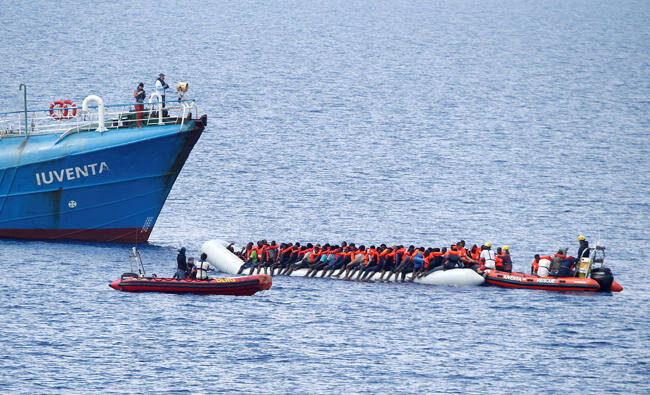Libyan authorities have suspended the activities of 10 international humanitarian organizations, accusing them of trying to resettle African migrants in the country. Officials claim that these efforts pose a threat to national security and could change Libya’s demographic makeup. The decision was announced on Wednesday by the country’s Internal Security Agency (ISA), which has been cracking down on NGOs operating in the region.
Libya is a major transit point for migrants from sub-Saharan Africa who hope to reach Europe by crossing the Mediterranean Sea. However, the country remains politically unstable, with rival administrations controlling different regions. According to ISA spokesperson Salem Gheith, the banned organizations were engaged in activities that could destabilize Libya. He stated that settling migrants in the country was a “hostile act” that could impact society and threaten Libya’s national identity.
Several well-known aid groups, including the Norwegian Refugee Council, Doctors Without Borders (MSF), Terre des Hommes, and CESVI, have been ordered to stop operations immediately. Their offices in Tripoli have also been shut down as part of the government’s move against international NGOs. The decision comes after reports that the ISA had been targeting humanitarian workers, summoning at least 18 staff members from six NGOs for questioning. Some of them had their passports confiscated, while others were forced to resign and sign pledges never to work with NGOs again.
The crackdown has sparked international concern. A letter dated March 27, signed by 17 European diplomats and a senior UN official, accused Libyan authorities of obstructing humanitarian aid. The letter was addressed to the Tripoli-based foreign ministry and warned that these measures could severely disrupt humanitarian efforts in Libya. Several organizations have already suspended their work to avoid further conflict with authorities.
Since the 2011 NATO-backed uprising that led to the fall of Muammar Gaddafi, Libya has struggled with political chaos and armed conflicts. This instability has made it a hotspot for human trafficking and migrant smuggling. While the United Nations estimates that there are around 700,000 migrants in Libya, local officials claim the number is much higher. Gheith accused the European Union of using NGOs as a “tool” to resettle migrants and even engaging in money laundering under the cover of humanitarian aid.
Last month, Tripoli-based Interior Minister Imad Trabelsi reaffirmed that Libya “will not bear the burden of illegal immigration alone.” He also insisted that Libya “will not become a settlement zone” for migrants attempting to reach Europe. His statement reflects growing frustration among Libyan authorities over how migration is being managed.
In response to Libya’s decision, the European Union, France, Britain, and other countries have urged authorities to reconsider the ban. They warned that blocking NGOs could cut off vital humanitarian assistance, including access to primary healthcare for vulnerable people in Libya. The diplomats’ letter also called on Libya to allow aid groups to resume operations and reopen their offices to continue their work.

